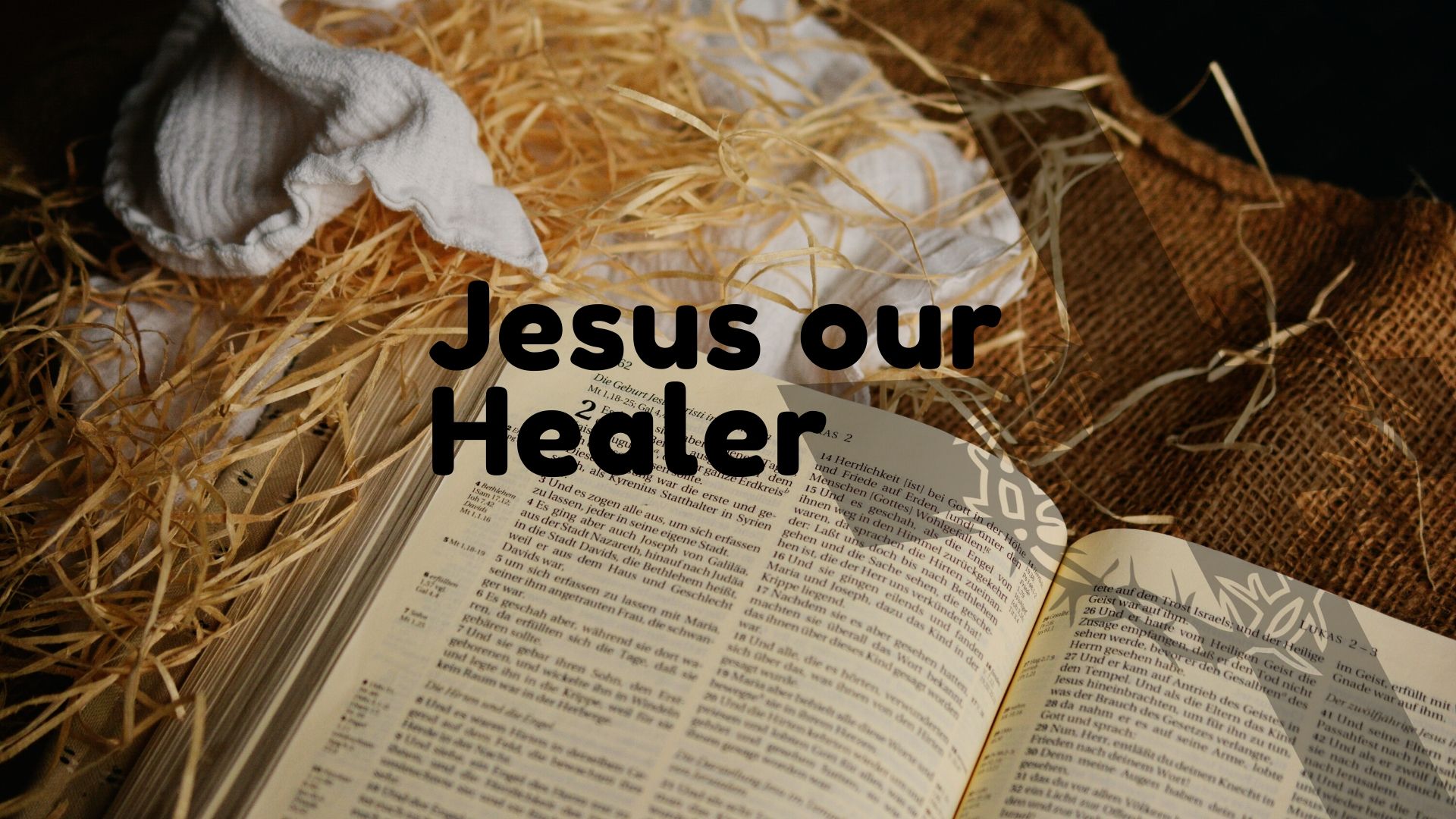Alright folks, let’s dive into something deep and meaningful. God's Hebrew name for healer isn’t just a term—it’s a gateway to understanding the divine role in healing. Whether you’re exploring spirituality, diving into biblical studies, or simply curious about the power behind healing, this is the article you’ve been waiting for. We’re going to break it down piece by piece, making sure every corner of this topic is uncovered. So, grab your coffee, get comfy, and let’s roll!
Now, before we jump in too deep, let’s set the stage. Healing is more than just physical recovery—it’s emotional, spiritual, and sometimes even supernatural. And when we talk about God’s role in healing, we’re tapping into a reservoir of ancient wisdom and divine purpose. This isn’t just about a name; it’s about understanding the essence of healing from a biblical perspective.
Throughout history, people have sought answers to the mysteries of life, and one of the biggest questions has always been, “Who is the ultimate healer?” The answer lies in the depths of the Hebrew language, where words carry meaning far beyond their surface. So, let’s peel back the layers and uncover the truth behind God’s Hebrew name for healer.
- Water Park Bikini Malfunctions The Ultimate Guide To Stay Cool And Covered
- Nikko Ortiz Disability Inspiring Stories And Facts You Need To Know
What Does "Healer" Mean in the Biblical Context?
Let’s start with the basics. In the Bible, healing isn’t just about fixing broken bones or curing diseases. It’s about restoration—of body, mind, and spirit. And when we talk about God’s Hebrew name for healer, we’re diving into the language of the Old Testament, where every word is packed with significance.
In Hebrew, the word often associated with healing is "Rophe" (רפא). This term is used throughout the Bible to describe God’s role as the ultimate healer. But here’s the kicker—it’s not just about physical healing. Rophe encompasses the idea of making whole, restoring, and renewing. It’s a concept that goes far beyond what we typically think of as healing.
So, why does this matter? Well, understanding the biblical context of healing helps us see God’s role in a whole new light. It’s not just about miracles—it’s about a deep, transformative process that touches every aspect of our lives.
- Unveiling The Glamorous World Of Jz Styles Salon Reviews
- 99 Cent Store Headphones Are They Worth The Hype
God's Hebrew Name for Healer: Rophe and Its Variations
Exploring the Depth of Rophe
Rophe isn’t just a word—it’s a declaration of God’s character. In Exodus 15:26, God says, “For I am the Lord your healer.” This verse isn’t just a promise; it’s a reminder of God’s divine role in our lives. When we explore the meaning of Rophe, we’re not just looking at a name—we’re uncovering a covenant.
Here’s the deal: in Hebrew, every word has layers of meaning. Rophe doesn’t just mean healer—it implies restoration, renewal, and wholeness. It’s a word that speaks to the heart of God’s character and His desire to make us whole.
Other Names Linked to Healing
While Rophe is the most commonly used term, there are other names in the Hebrew Bible that point to God’s role as healer. For instance, "YHWH Ropheka" (Lord your healer) is a variation that emphasizes the personal relationship between God and His people. This name reminds us that healing isn’t just a one-size-fits-all solution—it’s deeply personal and relational.
Another term worth mentioning is "Marpe" (healing), which is used in Psalms and other parts of the Bible. Marpe highlights the idea of healing as a process—a journey that requires trust and faith in God’s timing and purpose.
Why Is Understanding God's Hebrew Name for Healer Important?
Understanding God’s Hebrew name for healer isn’t just about expanding your biblical knowledge—it’s about deepening your faith. When we grasp the significance of Rophe and its variations, we begin to see God in a new light. He’s not just a distant deity who occasionally steps in to fix things; He’s a God who is deeply invested in our well-being.
This understanding has practical implications in our daily lives. Whether you’re dealing with physical illness, emotional pain, or spiritual struggles, knowing God’s role as healer can be a source of comfort and strength. It reminds us that we’re never alone in our battles and that God is always working behind the scenes to bring healing and restoration.
How Does God's Role as Healer Manifest in the Bible?
Stories of Healing in the Old Testament
The Bible is filled with stories of God’s healing power in action. One of the most famous examples is the story of Moses and the Israelites. When the Israelites complained about the bitter water at Marah, God instructed Moses to throw a piece of wood into the water, making it sweet. This act of healing wasn’t just about providing drinkable water—it was a symbol of God’s presence and provision.
Another powerful story is found in 2 Kings 5, where Naaman, a Syrian general, is healed of leprosy. Despite his initial reluctance, Naaman follows God’s instructions and is miraculously healed. This story highlights the importance of obedience and trust in the healing process.
Jesus as the Ultimate Healer
Fast forward to the New Testament, and we see Jesus continuing the tradition of healing. From healing the blind to raising the dead, Jesus demonstrated God’s power to restore and renew. His ministry was filled with acts of healing that went beyond the physical—touching hearts, minds, and spirits.
One of the most profound examples is the story of the woman with the issue of blood. For twelve years, she had been seeking healing but found none. But when she touched the hem of Jesus’ garment, she was instantly healed. This story shows us that healing is available to all who seek it with faith.
Modern-Day Implications of God's Role as Healer
Healing in Today's World
While the stories in the Bible are powerful, they may seem distant from our modern lives. But the truth is, God’s role as healer is just as relevant today as it was thousands of years ago. Whether you’re dealing with chronic illness, mental health challenges, or relational struggles, God’s promise to heal remains true.
Here’s the thing: healing doesn’t always look the way we expect it to. Sometimes it’s a miraculous recovery, but other times it’s a gradual process of restoration. And that’s okay. God works in mysterious ways, and His timing is perfect.
Practical Steps for Seeking Healing
If you’re seeking healing in your life, here are a few practical steps you can take:
- Pray consistently: Talk to God about your needs and desires. Be specific, but also trust in His plan.
- Seek community: Surround yourself with people who will support and encourage you on your journey.
- Study the Word: Immerse yourself in Scripture, especially passages that speak to healing and restoration.
- Take action: Whether it’s seeing a doctor, attending therapy, or making lifestyle changes, do your part in the healing process.
The Power of Faith in Healing
At the heart of God’s role as healer is faith. Faith isn’t just about believing in God’s ability to heal—it’s about trusting in His plan and purpose for your life. When we approach healing with faith, we open ourselves up to the possibility of transformation.
This doesn’t mean that healing is guaranteed every time. Sometimes, God’s plan includes walking through the valley rather than around it. But even in those moments, His presence is a source of comfort and strength.
Challenges and Misconceptions About Healing
Addressing Common Misconceptions
There are a lot of misconceptions about healing in the Christian community. Some people believe that if you’re not healed, it’s because you don’t have enough faith. Others think that healing is only for the spiritually elite. But the truth is, healing is a gift from God, and it’s available to all who seek it.
It’s important to remember that healing isn’t always immediate or visible. Sometimes, it’s a process that takes time and patience. And that’s okay. God’s timing is perfect, even when it doesn’t align with ours.
Overcoming Doubt and Fear
Doubt and fear are common obstacles on the journey to healing. They can creep in when we don’t see immediate results or when the road feels long and difficult. But here’s the thing: God is bigger than our doubts and fears. He invites us to bring them to Him and trust in His plan.
One way to overcome doubt is to focus on God’s promises in Scripture. When we meditate on His Word, we’re reminded of His faithfulness and power. Another way is to surround yourself with a supportive community that will encourage and uplift you.
Conclusion: Embracing God's Role as Healer
As we wrap up this exploration of God’s Hebrew name for healer, let’s take a moment to reflect on what we’ve learned. Rophe, YHWH Ropheka, and Marpe are more than just words—they’re declarations of God’s character and His desire to heal and restore. Whether you’re seeking physical, emotional, or spiritual healing, know that God is with you every step of the way.
So, what’s next? I invite you to take action. Whether it’s praying for healing, studying the Word, or seeking community, do something today to move forward in your journey. And remember, healing isn’t just about fixing problems—it’s about becoming whole in every area of your life.
Feel free to leave a comment below or share this article with someone who might benefit from it. Together, let’s embrace the power of God’s role as healer and the transformative impact it can have on our lives.
Table of Contents
- Discovering God's Hebrew Name for Healer
- What Does "Healer" Mean in the Biblical Context?
- God's Hebrew Name for Healer: Rophe and Its Variations
- Why Is Understanding God's Hebrew Name for Healer Important?
- How Does God's Role as Healer Manifest in the Bible?
- Modern-Day Implications of God's Role as Healer
- The Power of Faith in Healing
- Challenges and Misconceptions About Healing
- Conclusion: Embracing God's Role as Healer
- Cut Micro Bangs The Ultimate Guide To Transforming Your Look
- How To Reach The Sphere In Las Vegas A Stepbystep Guide


